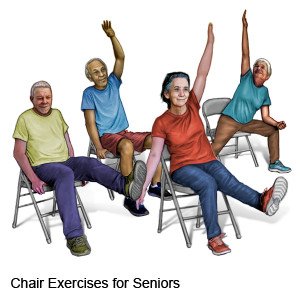Depression Management for Older Adults
Medically reviewed by Drugs.com. Last updated on Jun 5, 2024.
Depression is a mood disorder that causes feelings of sadness or hopelessness that do not go away. You may lose interest in things you used to enjoy. Depression is not a normal part of aging. Treatment can help improve your daily life.
DISCHARGE INSTRUCTIONS:
Call your local emergency number (911 in the US) if:
- You think about hurting yourself or someone else.
- You have done something on purpose to hurt yourself.
Call your therapist or doctor if:
- Your symptoms do not improve.
- You have new symptoms.
- You have questions or concerns about your condition or care.
The following resources are available at any time to help you, if needed:
- Contact a suicide prevention organization:
- For the 988 Suicide and Crisis Lifeline:
- Call or text 988
- Send a chat on https://988lifeline.org/chat
- Call 1-800-273-8255 (1-800-273-TALK)
- For the Suicide Hotline, call 1-800-784-2433 (1-800-SUICIDE)
- For the 988 Suicide and Crisis Lifeline:
- For a list of international numbers: https://save.org/find-help/international-resources/
Medicines:
Tell your healthcare provider about other medicines you take. This will help your provider recommend the right kind for you. Tell your provider if you need help creating a medicine schedule or reminders to take your medicines.
- Antidepressants may be given to decrease or manage symptoms. You may need to take this medicine for several weeks before they start working.
- Take your medicine as directed. Contact your healthcare provider if you think your medicine is not helping or if you have side effects. Tell your provider if you are allergic to any medicine. Keep a list of the medicines, vitamins, and herbs you take. Include the amounts, and when and why you take them. Bring the list or the pill bottles to follow-up visits. Carry your medicine list with you in case of an emergency.
Cognitive behavioral therapy
(CBT) helps you identify and change negative thought patterns.
What you can do to manage depression:
- Connect with others. Connection can help after loss, especially on holidays, birthdays, or anniversaries. You may want to tutor a young student or volunteer at a local organization. You may also be able to find groups that participate in activities or interests you enjoy. Your religious or spiritual organization may offer activities you can participate in. It may also help to talk with your religious or spiritual leader about how you are feeling.
- Be physically active as directed. Physical activity, such as exercise, can lift your mood, increase energy, and make it easier to sleep. If you have balance problems or other physical limits, your healthcare provider can help you create a safe activity plan. You may enjoy a group exercise class, or a friend may be able to exercise with you.

- Ask about equipment to increase your comfort and mobility. Examples are hearing aids, glasses, large print books, and walkers. These can help you enjoy activities and feel more independent.
- Continue taking medicine and going to therapy. Medicine and therapy can help. It may take some time before your symptoms improve. Talk to your healthcare providers if you notice any change in your depression.
- Seek help for drug or alcohol use, if needed. These can make depression worse. Your healthcare providers can give you information if you need help to quit.
Follow up with your doctor or therapist as directed:
Your healthcare provider will monitor your progress and your medicine if you take antidepressants. Your provider will ask if the medicine is helping. Tell your provider about any side effects or problems you have with your medicine. The type or amount of medicine may need to be changed. Write down your questions so you remember to ask them during your visits.
For support or more information:
- National Alliance on Mental Illness
3803 N. Fairfax Dr., Suite 100
Arlington , VA 22203
Phone: 1- 703 - 524-7600
Phone: 1- 800 - 950-6264
Web Address: http://www.nami.org
- 988 Suicide and Crisis Lifeline
PO Box 2345
Rockville , MD 20847-2345
Phone: 1- 800 - 988
Web Address: http://www.suicidepreventionlifeline.org OR https://988lifeline.org/chat/
© Copyright Merative 2024 Information is for End User's use only and may not be sold, redistributed or otherwise used for commercial purposes.
The above information is an educational aid only. It is not intended as medical advice for individual conditions or treatments. Talk to your doctor, nurse or pharmacist before following any medical regimen to see if it is safe and effective for you.
Further information
Always consult your healthcare provider to ensure the information displayed on this page applies to your personal circumstances.
